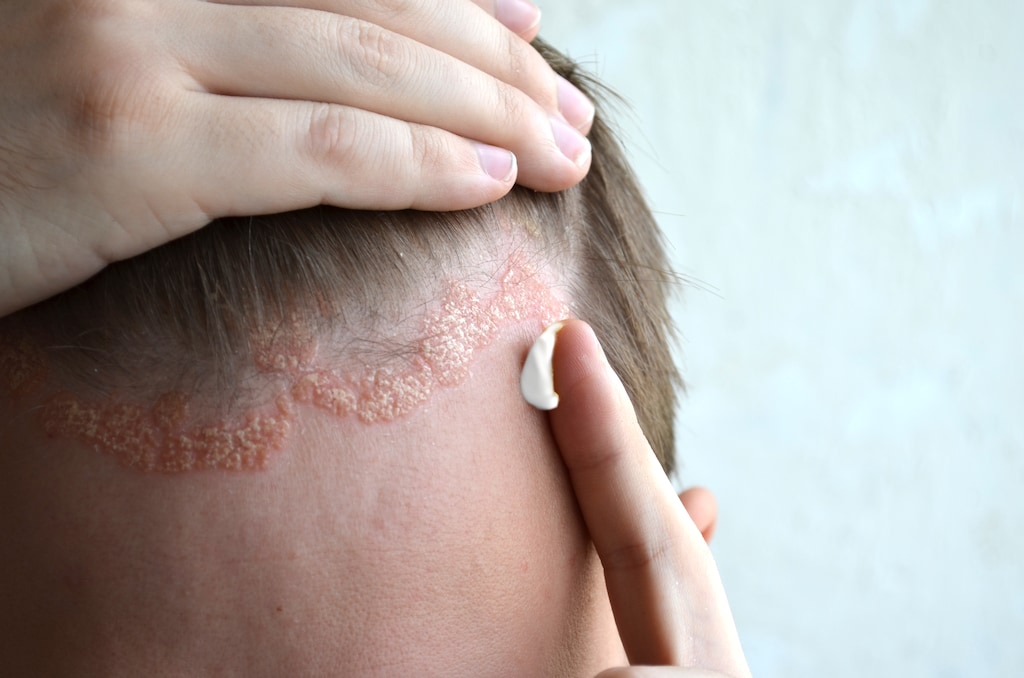What is Siliq?
Siliq is a prescription medicine used to treat adults with moderate to severe plaque psoriasis:
- who may benefit from taking injections or pills (systemic therapy) or phototherapy (ultraviolet light treatment), and
- who have not responded or lost response to other systemic therapy.
It is not known if Siliq is safe and effective in children.
What is the most important information I should know about Siliq?
Siliq may cause serious side effects, including:
- Suicidal thoughts or behavior have happened in some people treated with Siliq. Some people have ended their own lives. Your risk of suicidal thoughts and behavior may be increased if you have a history of suicidal thoughts or depression. It is not known if Siliq causes suicidal thoughts or behavior. Get medical help right away if you or your caregiver notice any of the following symptoms:
- new or worsening depression or anxiety
- thoughts of suicide, dying, or hurting yourself
- changes in behavior or mood
- acting on dangerous impulses
- attempt to commit suicide
Your healthcare provider will give you a Siliq Patient Wallet Card about symptoms you should get medical help for right away. Carry the card with you at all times during treatment with Siliq and show it to all of your healthcare providers.
- Serious infections. Siliq may lower the ability of your immune system to fight infections and may increase your risk of infections. Your healthcare provider will check you for tuberculosis (TB) before starting treatment with Siliq and may treat you for TB before you begin treatment with Siliq if you have a history of TB or have active TB. Your healthcare provider should watch you closely for signs and symptoms of infection and TB during and after treatment with Siliq.
Tell your healthcare provider right away if you have an infection or have symptoms of an infection, including:- fever, sweats, or chills
- muscle aches
- cough
- shortness of breath
- sore throat or difficulty swallowing
- warm, red, or painful skin or sores on your body
- diarrhea or stomach pain
- burning when you urinate or urinate more often than normal
See “What are the possible side effects of Siliq?” for more information about side effects.
Who should not use Siliq?
Do not use Siliq if you have Crohn’s disease.
What should I tell my healthcare provider before using Siliq?
Before you use Siliq, tell your healthcare provider about all of your medical conditions, including if you:
- have a history of mental problems, including suicidal thoughts, depression, anxiety, or mood problems.
- have an infection that does not go away or that keeps coming back.
- have TB or have been in close contact with someone with TB.
- have recently received or are scheduled to receive an immunization (vaccine). You should avoid receiving live vaccines during treatment with Siliq.
- are pregnant or plan to become pregnant. It is not known if Siliq can harm your unborn baby. If you are pregnant or plan on becoming pregnant, consult with your healthcare provider.
- are breastfeeding or plan to breastfeed. It is not known if Siliq passes into your breast milk.
Tell your healthcare provider about all the medicines you take, including prescription and over-the-counter medicines, vitamins, and herbal supplements.
How should I use Siliq?
- See the detailed “Instructions for Use” that comes with Siliq for information on how to inject a dose of Siliq and how to properly store and throw away (dispose of) used Siliq prefilled syringes.
- Use Siliq exactly as your healthcare provider tells you to use it.
- Your healthcare provider may stop Siliq if your plaque psoriasis does not improve within 12 to 16 weeks of treatment.
What are the possible side effects of Siliq?
Siliq may cause serious side effects. See “What is the most important information I should know about Siliq?”
- Crohn’s disease. Tell your healthcare provider if you develop diarrhea, painful diarrhea, bloody stools, stomach pain or cramping, sudden or uncontrollable bowel movements, loss of appetite, constipation, weight loss, fever, or tiredness.
The most common side effects of Siliq include: joint pain, headache, tiredness, diarrhea, mouth or throat pain, nausea, muscle pain, injection site reactions, flu (influenza), low white blood count (neutropenia), and fungal infections of the skin.
Call your doctor for medical advice about side effects. You may report side effects to FDA at 1-800-FDA-1088.
General information about the safe and effective use of Siliq
Medicines are sometimes prescribed for purposes other than those listed in a Medication Guide. Do not use Siliq for a condition for which it was not prescribed. Do not give SILIQ to other people even if they have the same symptoms that you have. It may harm them. You can ask your pharmacist or healthcare provider for information about Siliq that is written for health professionals.
How should I store Siliq?
- Store Siliq prefilled syringe in the refrigerator at 36° to 46°F (2° to 8°C).
- If needed, Siliq prefilled syringe may be stored at room temperature up to 77°F (25°C) for up to 14 days. Do not place Siliq prefilled syringe stored at room temperature back into the refrigerator.
- Throw away Siliq prefilled syringe that has been stored at room temperature after 14 days.
- Protect Siliq prefilled syringe from heat.
- Do not freeze.
- Keep Siliq prefilled syringe in the original carton to protect from light and physical damage.
- Keep Siliq prefilled syringe and all medicines out of reach of children.
What are the ingredients in Siliq?
Active ingredient: brodalumab
For more information, go to www.SILIQ.com or call Bausch Health US, LLC at 1-800-321-4576.





